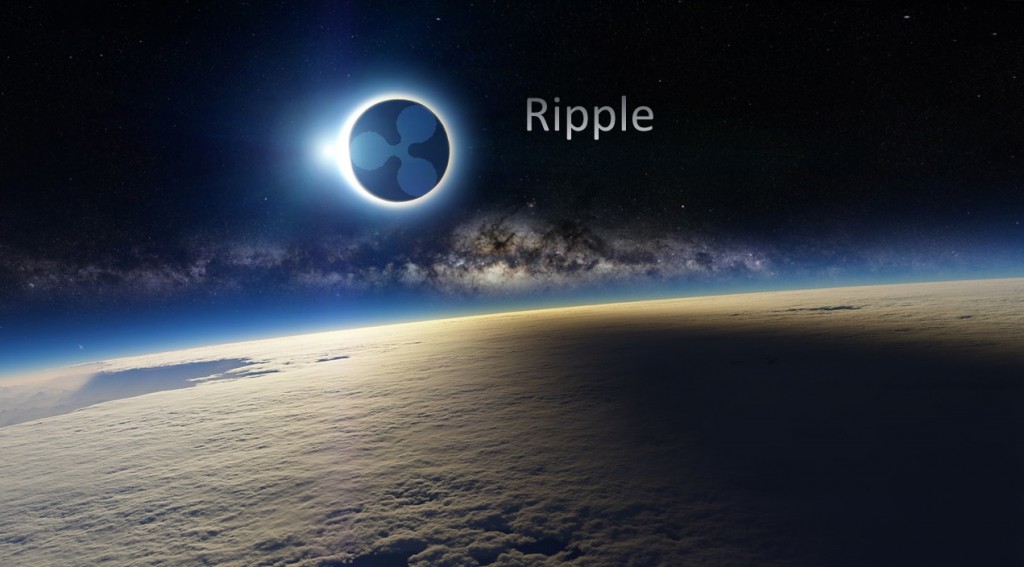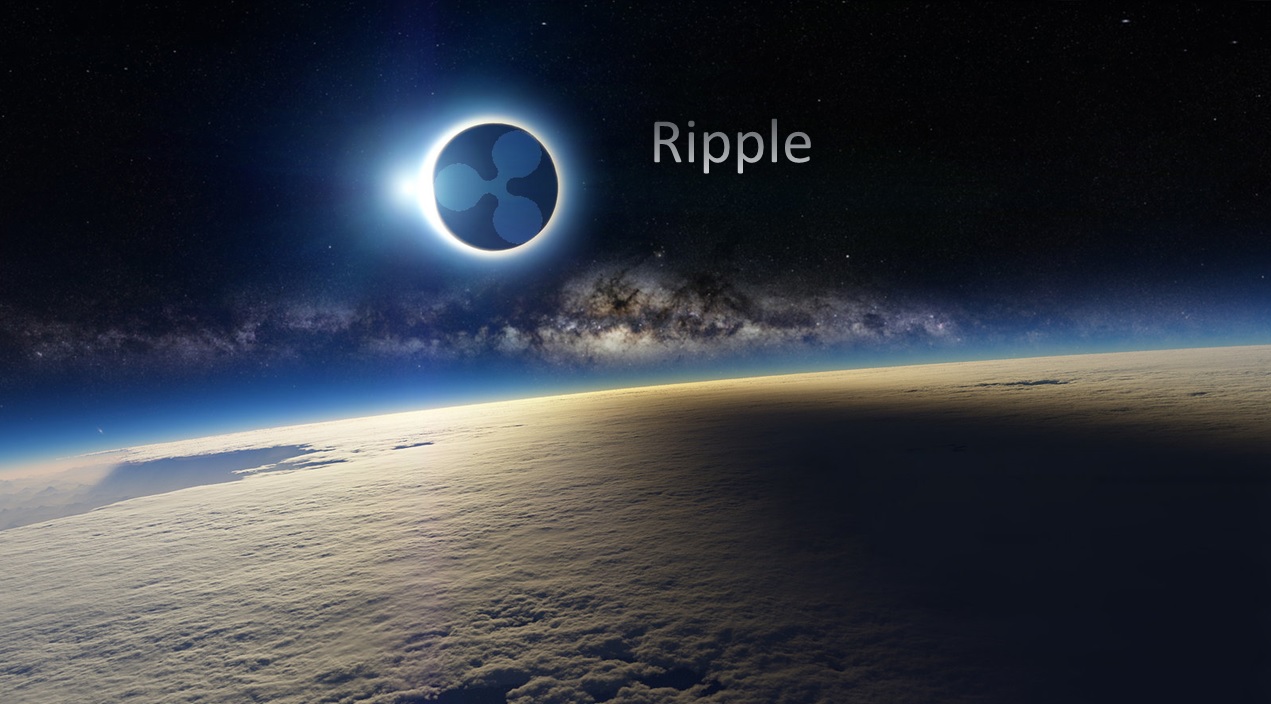
Speculation on the future price of Ripple XRP in Thailand is not short in supply. While frequenting social media I regularly find members of the XRP community stating, sometimes arbitrarily, what they believe the maximum price for a single XRP coin could one day be. While no one could possibly know what the timeline for growth and adoption of the coin will look like, it is possible to make a reasonable price limit prediction if we’re only considering it’s primary use case as a bridge currency for cross-border settlement of payments.
It’s important to understand the current volume of monetary transactions on a macro scale. Speaking in terms of order of magnitude, the dollars transferred in the cross-border payment market dwarfs the value of every market in existence. SWIFT, arguably the market leader, transfers about $1.25 quadrillion per year. CHIPS transfers about $400 trillion per year, and Fedwire transfers about $900 trillion per year. This adds up to roughly $2.55 quadrillion transferred annually, or about $9.8 trillion worth of transactions each business day.
Perhaps the greatest pain point financial institutions face when processing cross-border payments is sourcing the liquidity necessary to make such transactions possible. As recently as the end of 2015, balances tied up globally in nostro accounts exceeded $27 trillion. Ripple is working tirelessly to position XRP as the premiere source for on-tap liquidity and the fastest option for settlement of payments. As such, XRP is poised to solve what is, on an annual basis, a multi-quadrillion dollar problem. The implicit value of the opportunity at hand cannot be overstated.
Let that data sink in for a moment. Roughly $27 trillion is parked in transactional accounts at this very moment to facilitate the transfer & settlement of the comparably smaller figure of $9.8 trillion on a daily basis. That means that XRP will need to have a market cap of $9.8 trillion just to accommodate the average daily transactions of all cross border payments systems in order to achieve 100% market share. While I don’t find it reasonable to predict XRP will be used for all payments within this market, at the outset of this blog I cited my goal as pegging a reasonable upper limit to the value of XRP. This assumes 100% dominance. Here goes:
- There are currently 38,739,144,847 XRP coins in circulation at the time of this writing. I’ll round up to 39 billion for the sake of simpler calculations
- Assume a market cap of $27 trillion for XRP which is the value that is already in nostro accounts today. To determine the value of each individual coin we divide the market cap by total circulating supply, or $27 trillion divided by 39 billion. That comes out to a value of $692.30 for each XRP coin.
That’s the number; $692.30 per XRP. That was calculated using the most accurate estimates available based on knowable data, and only considers it’s use case as a mechanism for cross-border settlements by financial institutions. That being said, this figure doesn’t do much to help us determine what the true value of XRP might be one day because too many things are unknowable.
The reason $27 trillion is sitting in nostro accounts just waiting to be used to facilitate payment transactions is that it currently takes upwards of 5 days for a transaction to settle, and the demand for transactions ebbs and flows. Thus, financial institutions must have much more money sitting idle in transactional accounts than they think they’ll need, just in case. Compare that 5 day transaction time with XRP which takes a mere 4 seconds to settle transactions. I find it reasonable to speculate that not much more than the average daily value of transactions, $9.8 trillion, would need to be held in the form of XRP if financial institutions adopt the technology. That would mean a lower upper limit when speculating about the future value of XRP than if $27 trillion were still needed to be on hand for liquidity. However, if XRP became the standard for transactions, you could expect an increase in the volume of cross border transactions. Put simply, the speed and low cost of XRP sourced transactions would create an unknowable amount of new demand which would increase the XRP market cap, and with it the value of each coin.
The trouble with price speculation is that the value of the factors that are needed for calculations are always changing. In December 2017 Ripple placed 55 billion XRP in escrow and will release a maximum of 1 billion XRP per month until the entire supply is in the market one day. This will radically change the amount of XRP in circulation over time. The implications of such? The point at which the supply of XRP meets the demand of the market will change regularly and will result in a continually shifting equilibrium price. However, it’s also true that with every single transfer of XRP, a tiny amount of it is shredded forever, decreasing the supply slowly over time and making it more valuable.
At the outset I stated that it’s easy to make a reasonable price limit prediction if we’re only considering XRP’s value as a bridge currency for cross-border transactions. What I didn’t mention until now is that I believe it’s silly to think about the potential of XRP exclusively in such terms. How many of you have considered that to date, XRP’s primary use is as a store of value? That vast majority of XRP in circulation is not currently held by financial institutions. It’s held by people like you and me: speculative investors. Bitcoin is currently being treated as a digital version of gold, so why can’t the same be true for XRP? It’s my contention that as demand for XRP soars over time, people will treat it like they treat gold. I believe that the market cap of XRP will one day soar to the trillions, supplanting Bitcoin of it’s current position as the number one digital asset in the world. If financial institutions adopt XRP en masse this year, it could be number one before the end of 2018. Such a development would dramatically increase the visibility of XRP and would only serve to spur mass adoption of XRP as a store of value.
What could that mean for the value of XRP? Consider this:
- The market cap for gold is about $7.8 trillion
- If XRP one day matches the value that gold is today, that adds an additional value of $200 per XRP based on the current circulating supply of the coin
The party doesn’t stop there. Ripple recently announced that 3 out of the 5 largest money transfer companies in the world have committed to using XRP. Days after this announcement it was confirmed that one of those companies is Moneygram. Western Union & PayPal are two additional names that have been floating around as potential early adopters of XRP. Be patient; time will reveal all business entities that plan to team up with Ripple and utilize XRP.
In reality just about any company that is transferring money could use XRP to settle payments, which is why everything I’ve written about in this particular blog entry is just the tip of the iceberg. Imagine if companies like Amazon, Walmart, Uber, and eBay began using XRP. I’ve already cited several examples above, where numbers have been crunched, and if combined then in theory could push the price of a single XRP to over $1,000. Not that I believe this is exactly how things will play out, but the point of this exercise is to help people to understand that we have barely scratched the surface of the use cases for XRP. As such, I believe that the average investor has no earthly idea of the potential of what they just threw their money in. While Ripple’s core message is that they believe XRP should be the standard for cross border payment settlements, the truth is that there are an endless number of uses that would increase the value of XRP far beyond what it could ever be if it were only to be used by financial institutions.
How much could XRP be worth one day? As Ripple’s lead cryptographer David Schwartz once wrote, it “Depends on how big you want to dream.”
DISCLAIMER: I am not a financial adviser. None of what has been written here should be considered financial advice; it is not. Do your own research before investing in any digital asset, and understand that investing in any cryptocurrency is inherently risky. You need to be prepared to lose your entire investment.
